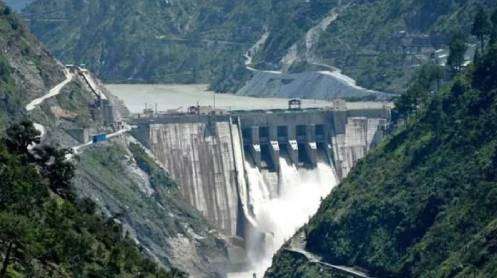ISLAMABAD: India has so far commissioned 10 hydropower projects with a combined capacity of 3,360 megawatts (MW) on rivers allocated to Pakistan under the Indus Waters Treaty, as part of its broader plan to develop 14,000MW of hydropower from the Indus, Chenab, and Jhelum rivers. An additional five major projects totaling 3,052MW are currently under construction.
This was disclosed by Arshad H. Abbasi, a noted water expert and veteran of Track-2 diplomacy on water issues between India and Pakistan. Abbasi, who has also worked on trans-boundary water matters with China, Bangladesh, and Central Asia, described India’s aggressive hydropower push in Jammu and Kashmir as driven more by strategic and geopolitical motives than genuine energy needs or environmental stewardship.
“India’s hydropower ambitions appear to reflect a defense-oriented strategy rather than a sustainable energy policy. These projects, many of which violate the ecological sensitivity of the fragile Himalayan region, are questionable from both environmental and economic perspectives,” Abbasi stated.
Pakistan has repeatedly raised concerns over the design of several Indian hydropower projects—particularly the Ratle (850 MW) and Kishanganga (330 MW) plants—claiming they breach treaty stipulations. Despite these objections, India has proceeded with construction, underscoring its intent to maximize water usage in the disputed Jammu and Kashmir region.
Abbasi also pointed to climatic challenges that are impacting the region’s hydrology. Studies by the Indian Meteorological Department have reported decreased rainfall and snowfall in the catchments feeding the Indus system, resulting in diminished inflows to major Indian reservoirs like Bhakra, Pong, and Ranjit Sagar dams.
Ironically, while India holds control over the Indus watershed, it has issued notices to Pakistan calling for a revision of the Indus Waters Treaty, citing climate change—an inconsistency Abbasi says underscores India’s selective approach to water management.
He emphasized the steep economic toll for Pakistan, estimating that the loss of over 25 million acre-feet (MAF) of water annually equates to an economic loss of \$37.5 billion, based on a value of \$1.5 billion per MAF. This loss deepens Pakistan’s water crisis and impairs its agricultural economy.
Moreover, Abbasi criticized the high tariffs associated with Indian hydropower projects like Pakal Dul (1,000 MW), Ratle, and Kiru (624 MW), which exceed the costs of solar and wind alternatives, raising further concerns about the financial viability of India’s hydro-centric energy strategy.
Story by Khalid Mustafa







